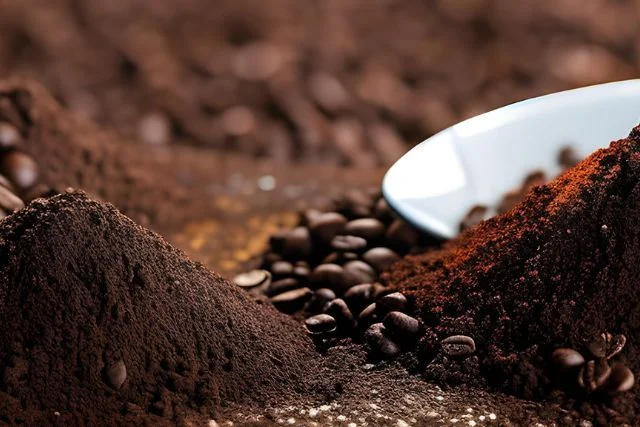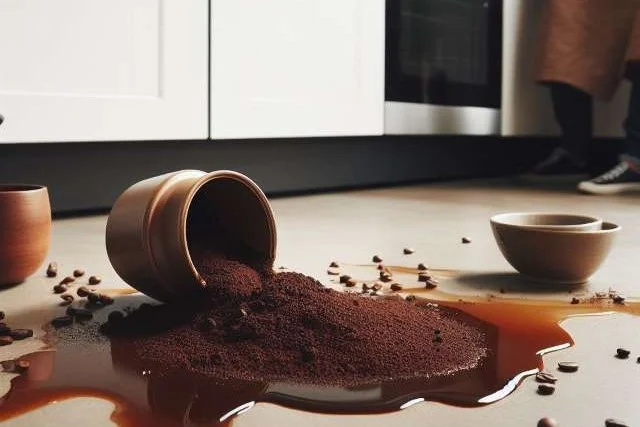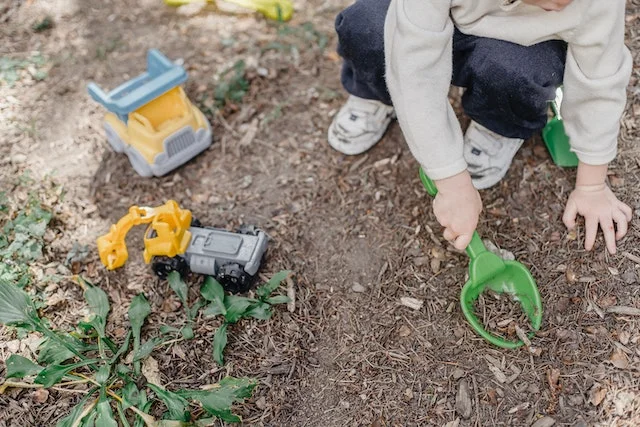Exploring the Safety of Coffee Grounds for Dogs
Coffee is a beloved drink for humans across the globe. The aromas and flavors of a fresh cup of coffee are irresistible to many people. But what about our canine companions? Are coffee grounds safe if ingested by dogs?
This is an important question for any dog owner. Coffee grounds are the remnants of brewed coffee beans. They have become a popular additive to gardens and compost piles as a source of nitrogen. However, the potential dangers of dogs consuming coffee grounds are not well known.
Are Coffee Grounds Bad for Dogs? Key Takeaways
- Caffeine Risk: Dogs are highly sensitive to caffeine, causing various health issues.
- Coffee Grounds Danger: Coffee grounds can be risky for dogs due to their caffeine content.
- Additional Harmful Compounds: Coffee grounds may contain other harmful compounds, potentially worsening the effects of caffeine.
- Prevent Access: To protect dogs, secure coffee grounds and stay vigilant around coffee products at home. Coffee grounds are not intentionally added to commercial dog food.
Understanding Coffee Grounds

To assess the risks of coffee grounds for dogs, we must first understand what exactly coffee grounds are.
What Are Coffee Grounds?
Coffee grounds refer to the dried particulate matter left over after brewing coffee. They consist of the ground beans after the desirable oils and soluble compounds have been extracted into the brewed coffee. The spent grounds are typically discarded after brewing.
Coffee grounds have an earthy, bitter taste and gritty texture. Their color ranges from light brown to nearly black depending on the roast of the beans. The particle size varies from fine powder to small chunks.
Composition of Coffee Grounds
While much of the soluble coffee extracts are removed during brewing, coffee grounds still contain many bioactive compounds including:
- Caffeine: The stimulant alkaloid that gives coffee its energizing effect. Varies by brewing method.
- Diterpenes: Bitter oils that can irritate the gastrointestinal system.
- Polyphenols: Antioxidants that can have anti-inflammatory effects.
- Melanoidins: Brown pigments that form during roasting.
- Fiber: Indigestible carbohydrates from the bean cell walls.
- Proteins: Structural molecules from the coffee beans.
- Minerals: Such as potassium, magnesium, and copper.
The specific nutrient profile will depend on factors like bean variety, roast level, and brewing method. But the key compound regarding dog safety is caffeine.
Can Dogs Consume Coffee Grounds?

We know dogs should avoid coffee itself due to the caffeine. But are the leftover coffee grounds safer since some caffeine has been removed?
The Dangers of Coffee for Dogs
First, it is important to understand the risks of coffee itself. Caffeine is toxic to dogs due to their sensitivity and inability to effectively metabolize it.
Consuming coffee can result in:
- Hyperactivity, restlessness, and pacing
- Gastrointestinal upset like vomiting and diarrhea
- Abnormal heart rhythms, high blood pressure
- Muscle tremors and seizures
- Death at high enough doses
Dogs are at least 10 times more sensitive to caffeine compared to humans. Lethal doses can be extremely variable based on size and individual tolerance.
Is Coffee Ground Consumption Safer?
While brewing does remove some caffeine, coffee grounds can still contain considerable amounts and pose a toxic risk if consumed.
Research shows that leftover coffee grounds still contain from 0.1% up to 1.27% caffeine by weight depending on brewing method and time. For comparison, caffeine makes up around 1-2% of whole coffee beans by weight.
So while the caffeine content is reduced, coffee grounds can still have enough to cause caffeine poisoning in dogs depending on the dose ingested. They cannot be considered non-toxic or safe.
Toxic Substances in Coffee Grounds

Caffeine is the primary concern, but coffee grounds contain other biologically active compounds that may also factor into their toxicity.
Caffeine Content
The amount of caffeine remaining in coffee grounds depends on several variables:
| Variable | Influence on Caffeine Content in Coffee Grounds |
| Brewing Method | Percolated, French press, espresso, etc. affect extraction efficiency. |
| Brew Time | Longer brewing removes more caffeine. |
| Bean Type | Robusta beans have almost twice the caffeine of Arabica. |
| Roast Level | Light vs. dark roast impacts caffeine content. |
| Grind Size | Finer grinds have more surface area, thus extracting more caffeine. |
While every scenario is unique, coffee grounds can never be assumed to be non-hazardous. They can readily deliver toxic doses of caffeine to dogs if consumed.
Other Harmful Compounds in Coffee Grounds
Beyond caffeine, compounds like diterpenes and tannins in coffee grounds may also produce adverse effects:
- Diterpenes: These oils may irritate the stomach and bowels.
- Tannins: Can have laxative effects promoting diarrhea.
So while caffeine is the primary toxin, these other compounds may exacerbate the digestive effects of a dog consuming coffee grounds.
Effects of Coffee Ground Ingestion

Eating coffee grounds can generate both acute symptoms and chronic health consequences in dogs.
Short-Term Effects
Within hours of ingestion, coffee grounds can lead to:
Nervous System Impact
- Restlessness, hyperactivity, panting
- Tremors, muscle twitching, lack of coordination
- Seizures, collapse in severe cases
These effects arise from the stimulatory action of caffeine on the nervous system. The severity depends on the dose consumed.
Digestive Distress
- Nausea, vomiting, abdominal pain
- Diarrhea
- Loss of appetite
Irritation from compounds like diterpenes and tannins causes inflammation of the gastrointestinal tract. Combined with caffeine’s stimulatory effects, this prompts vomiting and diarrhea.
Long-Term Health Implications
Beyond these acute symptoms, regular coffee ground consumption may elevate the risk for:
Cardiovascular Health
Caffeine’s stimulatory effects can stress the heart and cardiovascular system over time by:
- Increasing heart rate and blood pressure
- Causing abnormal heart rhythms
In those predisposed to heart disease, this could worsen or trigger clinical signs.
Kidney Function
The diuretic effect of caffeine places stress on the kidneys. In dogs prone to kidney disease, regular exposure to coffee compounds may hasten progression.
So in susceptible dogs, long-term ingestion could potentially contribute to chronic disease. But occasional small exposures are unlikely to have lasting effects.
Safe Amounts of Coffee Grounds

Is there a “safe” dose of coffee grounds that dogs can tolerate without ill effects? Unfortunately, there are no clear cut-off values.
Determining Safe Consumption Levels
Several key variables make it impossible to establish a “safe” threshold dose of coffee grounds for dogs:
- Caffeine content: Highly variable based on brewing specifics.
- Dog size: Toxic dose depends on body weight.
- Individual sensitivity: Some dogs are more susceptible to caffeine.
Given these uncertainties, it’s not possible to reliably calculate a “safe” amount of coffee grounds beyond which toxicity is certain to occur. Potential toxicity has to be assessed case-by-case.
Factors Affecting Tolerance
Certain dogs may handle coffee grounds better than others based on:
- Age: Young and old dogs tend to be more sensitive.
- Breed: Small breeds have heightened risk.
- Prior health conditions: Especially heart/kidney disease.
However, individual reactions can vary widely and should not be assumed. The only way to prevent trouble is to avoid exposure entirely.
Symptoms of Coffee Ground Toxicity

How can you recognize if a dog is suffering toxicity after eating coffee grounds?
Recognizing Toxicity Signs
Dogs exhibiting any of the following signs within hours of ingestion may be experiencing coffee ground toxicity:
- Agitation, restlessness, pacing
- Panting, rapid breathing
- Tremors, muscle twitching
- Vomiting, diarrhea
- Abnormal heart rate or rhythm
- Seizures or collapses in severe cases
The onset, type, and severity of symptoms depends on the amount consumed. But prompt veterinary attention is vital whenever toxicity is suspected.
When to Seek Veterinary Care
Dog owners should contact their vet or emergency clinic for evaluation if their dog:
- Shows any abnormal clinical signs within a day of ingesting coffee grounds
- Is known to have consumed a significant amount of grounds
- Is already exhibiting symptoms like vomiting or tremors
Do not wait to see if symptoms resolve. Getting ahead of toxicity is crucial, so immediate veterinary assessment is recommended.
Treatment for Coffee Ground Ingestion
Decontamination and supportive medical care are the mainstays of treatment for dogs with coffee ground toxicity.
Home Remedies
There are no safe, reliable home remedies for coffee ground toxicity. Inducing vomiting carries risks and should never be done except on a vet’s advice. Depending on the situation, your vet may recommend:
- Inducing vomiting if ingestion was recent
- Giving activated charcoal to help bind toxins in the GI tract
- Administering IV fluids to support kidney function
These treatments are only safe when properly supervised by a veterinary professional.
Veterinary Intervention
Depending on the severity, vets may provide:
- IV fluids: To prevent dehydration and support kidney function.
- Anti-vomiting medication: To soothe GI upset.
- Sedatives: To control agitation, restlessness, and tremors.
- Heart medications: Drugs to stabilize abnormal heart rhythms.
- Seizure control: Emergency drugs to stop seizures if they develop.
- Hospitalization with monitoring and supportive care for several days for severe toxicity until the caffeine clears the dog’s system.
Proper treatment can help manage toxicity symptoms and prevent lasting harm in cases of coffee ground ingestion. Preventing exposure is ideal, but prompt veterinary care maximizes outcomes.
Preventing Coffee Ground Ingestion
Given the potentially grave consequences of toxicity, preventing access to coffee grounds is imperative for dog owners.
Safe Storage Practices
Dog owners should be meticulous about keeping unused coffee grounds completely secured. Strategies include:
- Keeping grounds in a lidded trash bin, not an open compost pile.
- Storing waste grounds in pet-proof garbage cans.
- Disposing of used coffee filters and bags immediately.
- Putting grounds into secure compost bins, never loose in the garden.
Taking these basic precautions helps limit temptation and access.
Supervision and Training
In addition to storage measures, supervising dogs around coffee products and training “leave it” cues can further reduce the risks of ingestion at home. Owners should:
- Never leave unattended brewed coffee or open grounds within reach.
- Correct and distract from any interest in used grounds.
- Set clear boundaries about kitchen access when coffee is in use.
Staying vigilant when drinking coffee prevents bad behaviors before they start.
Coffee Grounds and Dog Food
Could coffee grounds potentially show up as an unlisted ingredient in some commercial dog foods?
Are They Used in Pet Food?
There are no reports of coffee grounds being intentionally added to dog food. The pet food industry does utilize “recycled” human food byproducts in formulations, however using spent coffee grounds would offer no nutritional benefit.
Regulating Coffee Grounds in Dog Food
All commercial pet foods in the United States must adhere to rules from the FDA and the Association of American Feed Control Officials (AAFCO) regarding ingredient quality and safety standards.
While coffee grounds do get recycled into compost and fertilizer, their presence in dog food would be considered an adulterant or contaminant, subject to regulatory action if discovered.
So it is extremely unlikely coffee grounds would be present in any reputable commercial or therapeutic dog food. Dog owners can feel confident their pet’s diet is coffee-free. However, vigilance is still needed around brewed coffee products in the home.
Expert Opinions

Veterinary and animal health experts agree coffee grounds are not safe for dogs to consume. Here’s a summary of their guidance.
Veterinarians’ Perspectives
Veterinarians consistently recommend keeping coffee grounds away from dogs based on the significant toxicity risk. They advise dog owners to:
- Store coffee grounds securely out of reach from pets.
- Never intentionally give dogs coffee products.
- Contact the vet immediately if ingestion is known or suspected.
Overall, vets consider coffee grounds dangerous and unnecessary for pet consumption.
Insights from Animal Nutritionists
Animal nutrition experts also warn against allowing dogs access to coffee grounds. Though they contain some nutrients, they note:
- The level of caffeine is far too high to be considered safe.
- Any nutritional value is very negligible compared to actual food.
- There are no proven benefits to justify the toxicity risks.
So while recycled for other uses in humans, nutritionists agree that coffee grounds have no place in a dog’s diet.
Public Awareness and Education
Greater public outreach is needed to spread awareness of coffee ground risks and promote proper handling.
Spreading Knowledge about Coffee Ground Dangers
Educational initiatives should aim to reach several key audiences:
- Dog owners – to encourage securing coffee waste.
- Gardeners – on safe composting practices.
- Veterinarians – to include warnings during client education.
- Pet food brands – to affirm coffee-free status.
- Municipalities – to consider household coffee waste management.
Educational Initiatives
Potential options for increasing public knowledge include:
- Social media awareness campaigns.
- Veterinary office brochures and posters.
- Product packaging advisories for coffee and composting products.
- Community seminars through shelters and pet stores.
- News stories highlighting coffee ground dangers.
Collective efforts across stakeholders are key to reducing coffee-related risks as more households regularly consume coffee.
Conclusion
It is clear that dogs and coffee grounds do not mix well. The bottom line is consuming coffee grounds poses considerable toxicity risks to dogs.
Recap of Key Findings
- Coffee grounds contain highly variable but potentially toxic doses of caffeine.
- Ingestion can result in life-threatening nervous system, cardiovascular, and GI effects.
- Outcomes are highly dependent on the amount consumed and how quickly treatment is obtained.
- There is no established “safe” dose, requiring vigilance and prevention.
- Proper storage and supervision are key to keeping dogs protected.
The Importance of Responsible Coffee Ground Management
All dog owners who drink coffee should establish rigorous protocols for used coffee grounds. Steps include:
- Disposing immediately in secured bins.
- Composting grounds safely out of reach.
- Never feeding dogs grounds or allowing access.
- Training dogs to avoid coffee products.
- Seeking prompt veterinary care if ingestion occurs.
While not inherently toxic substances, proactive handling and containment of coffee grounds is a must to protect beloved pets. Following proper protocols helps provide dogs a happy, coffee-free home.
Are Coffee Grounds Bad for Dogs FAQs
Yes. The caffeine in coffee grounds can cause toxicity and even seizures in dogs if consumed in large amounts.
Watch for signs like restlessness, panting, vomiting, diarrhea, twitching, or abnormal heartbeat within hours of ingestion. Contact your vet immediately.
Any amount can potentially cause toxicity depending on the dog’s size and sensitivity. Do not intentionally feed dogs coffee grounds.
No. The risks outweigh any minimal benefits. Dog food provides all the balanced nutrition dogs need without coffee additives.
It’s highly unlikely. Coffee grounds would be a toxic contaminant with no nutritional purpose in pet foods.
Glossary
- Coffee grounds: The dried particulate material left over after brewing coffee, consisting of spent grounds and bean fragments.
- Diterpenes: Bitter oils found in coffee with potential GI irritation effects.
- Polyphenols: Abundant antioxidants in coffee with anti-inflammatory properties.
- Caffeine: The stimulant compound found in coffee grounds that is toxic to dogs.
- Median lethal dose (LD50): The dose required to kill 50% of animals in toxicity studies, used to gauge poison severity.
- Activated charcoal: A highly absorbent powder used to bind toxins in the gastrointestinal tract.








